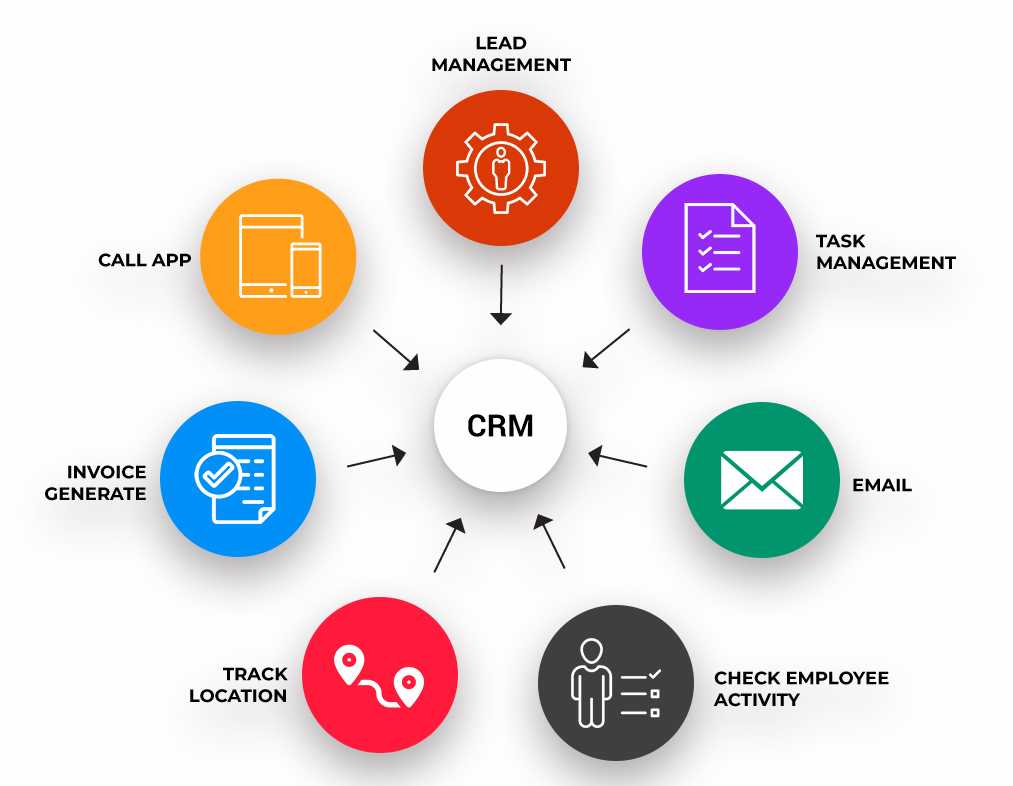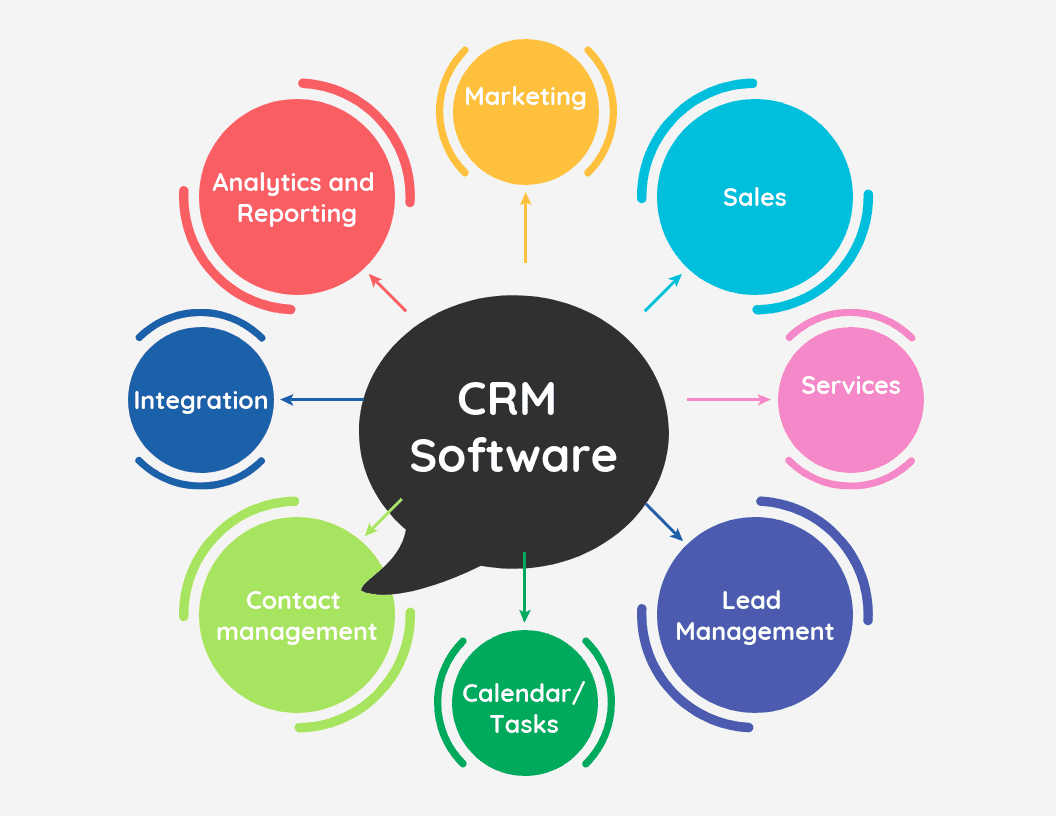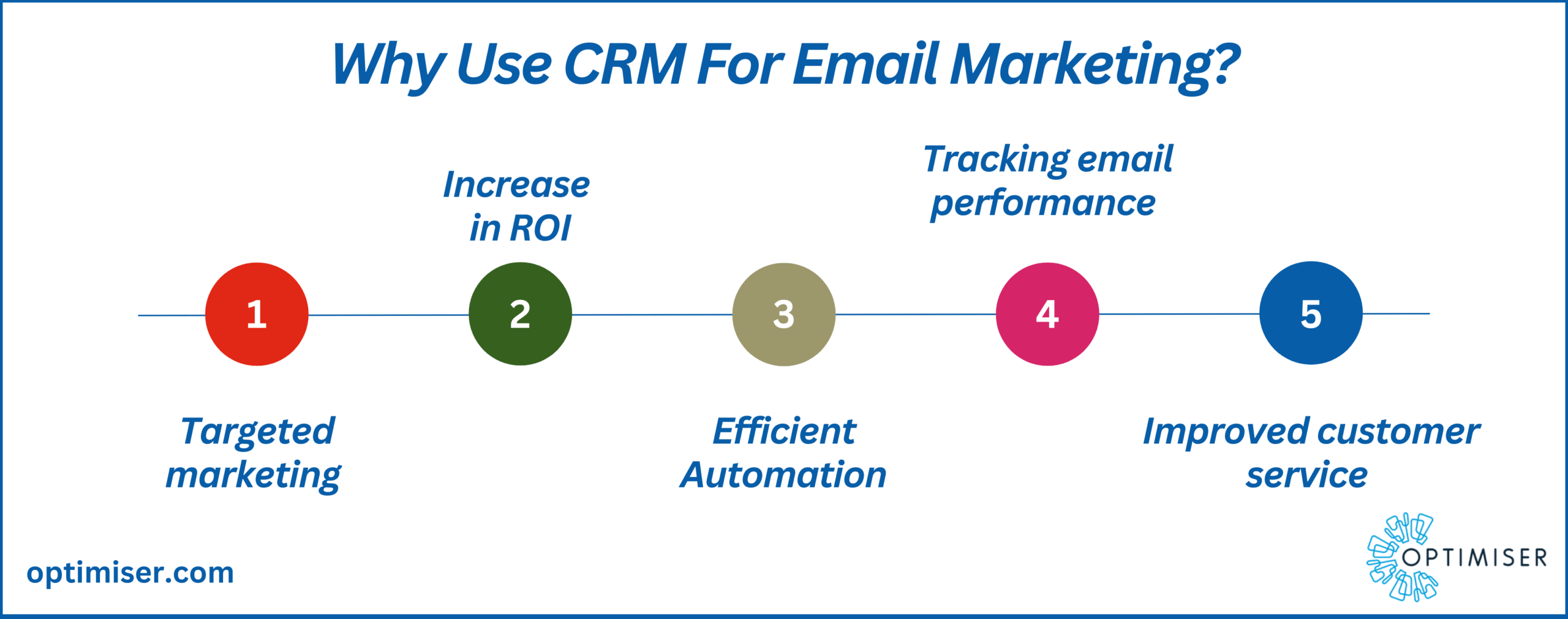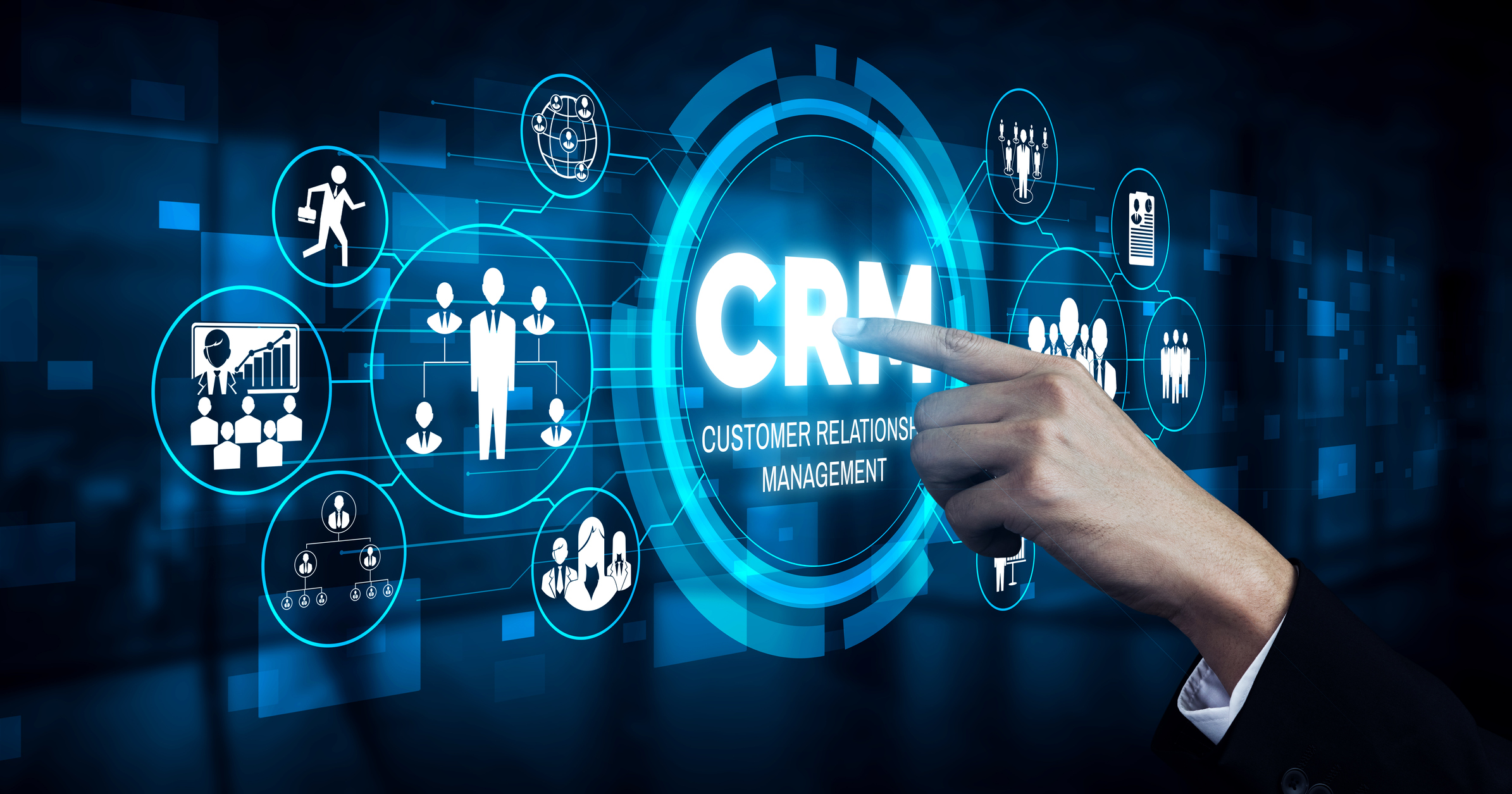CRM Email Marketing: Your Ultimate Guide to Smarter Customer Engagement and Growth
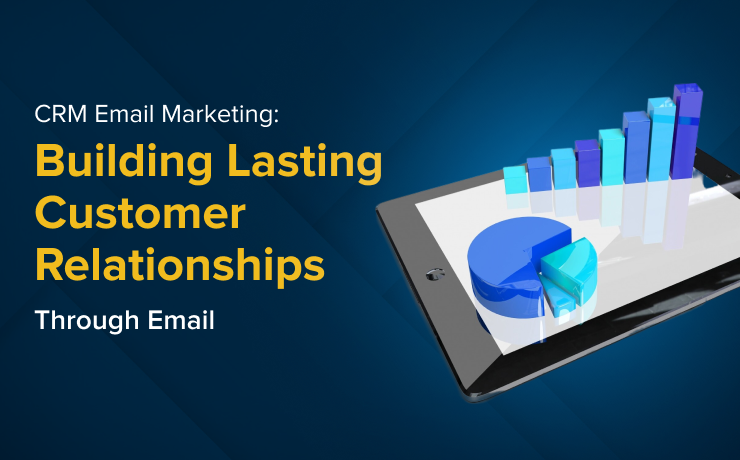
CRM Email Marketing: Your Ultimate Guide to Smarter Customer Engagement and Growth
In today’s fast-paced digital landscape, businesses are constantly seeking innovative ways to connect with their audience and drive growth. Email marketing, a cornerstone of digital strategy, has evolved significantly. When combined with the power of Customer Relationship Management (CRM) systems, it transforms into a highly effective tool for personalized communication, streamlined workflows, and enhanced customer experiences. This comprehensive guide delves deep into the world of CRM email marketing, exploring its benefits, strategies, and best practices to help you unlock its full potential.
What is CRM Email Marketing?
CRM email marketing is the strategic use of email marketing within a CRM system to manage and nurture customer relationships. It involves leveraging the data stored in your CRM – such as customer demographics, purchase history, website behavior, and interactions with your brand – to create targeted, personalized email campaigns that resonate with individual customers.
Unlike traditional email marketing, which often relies on mass blasts to broad audiences, CRM email marketing focuses on segmentation and personalization. This approach allows you to deliver relevant content, offers, and updates to each customer, increasing engagement, driving conversions, and building long-term loyalty.
The Benefits of CRM Email Marketing
Integrating email marketing with your CRM offers a plethora of benefits that can significantly impact your business’s bottom line. Here are some key advantages:
- Improved Customer Segmentation: CRM systems allow you to segment your audience based on various criteria, such as demographics, purchase history, and website behavior. This enables you to send highly targeted emails that resonate with specific customer groups.
- Personalized Communication: By accessing customer data within your CRM, you can personalize your emails with the customer’s name, purchase history, and other relevant information. This creates a more engaging and relevant experience for each recipient.
- Enhanced Customer Relationship: Personalized communication fosters stronger relationships with your customers, leading to increased loyalty and advocacy.
- Increased Engagement: Targeted and personalized emails are more likely to be opened, clicked, and converted. This leads to higher engagement rates and improved marketing ROI.
- Automated Workflows: CRM systems allow you to automate email marketing workflows, such as welcome emails, abandoned cart reminders, and follow-up messages. This saves time and ensures that your customers receive timely and relevant communications.
- Improved Lead Nurturing: CRM email marketing helps you nurture leads through the sales funnel by providing them with relevant information and offers at each stage of their journey.
- Better Data Analysis: CRM systems provide detailed analytics on your email marketing campaigns, allowing you to track key metrics such as open rates, click-through rates, and conversion rates. This data helps you optimize your campaigns and improve your overall marketing performance.
- Increased Sales and Revenue: By driving engagement, nurturing leads, and personalizing the customer experience, CRM email marketing can significantly increase sales and revenue.
- Reduced Costs: Automation and streamlined workflows reduce manual effort and marketing costs.
Key Features of a CRM for Email Marketing
To effectively implement CRM email marketing, you need a CRM system that offers a robust set of features. Here are some essential features to look for:
- Contact Management: The ability to store and manage detailed customer information, including contact details, demographics, purchase history, and interactions with your brand.
- Segmentation: The ability to segment your audience based on various criteria, such as demographics, purchase history, website behavior, and engagement levels.
- Email Automation: The ability to automate email marketing workflows, such as welcome emails, abandoned cart reminders, and follow-up messages.
- Personalization: The ability to personalize emails with customer names, purchase history, and other relevant information.
- Email Templates: Pre-designed email templates that you can customize to match your brand’s style and messaging.
- Email Tracking and Analytics: Detailed analytics on your email marketing campaigns, including open rates, click-through rates, conversion rates, and revenue generated.
- Integration with Other Tools: The ability to integrate with other marketing tools, such as social media platforms, landing page builders, and e-commerce platforms.
- Reporting and Dashboards: Customizable reports and dashboards that provide insights into your email marketing performance.
- Lead Scoring: The ability to score leads based on their engagement and behavior, helping you prioritize your sales efforts.
- Workflow Automation: Advanced workflow automation features to streamline your marketing and sales processes.
Building a Successful CRM Email Marketing Strategy
Implementing a successful CRM email marketing strategy requires careful planning and execution. Here are some key steps to follow:
- Define Your Goals: Before you start, clearly define your goals for your email marketing campaigns. What do you want to achieve? (e.g., increase sales, generate leads, improve customer retention)
- Know Your Audience: Understand your target audience and their needs, preferences, and pain points. This information will help you create relevant and engaging content.
- Segment Your Audience: Divide your audience into segments based on demographics, purchase history, website behavior, and engagement levels. This will allow you to send targeted and personalized emails.
- Create a Content Calendar: Plan your email content in advance, including the topics, formats, and frequency of your emails.
- Design Engaging Emails: Create visually appealing emails that are easy to read and navigate. Use a clear and concise writing style and include compelling calls to action.
- Automate Your Workflows: Set up automated email workflows to nurture leads, engage customers, and provide timely information.
- Test and Optimize: Regularly test your email campaigns to see what works best. A/B test different subject lines, email content, and calls to action to optimize your results.
- Track Your Results: Monitor your email marketing performance using the analytics provided by your CRM system. Track key metrics such as open rates, click-through rates, and conversion rates.
- Analyze and Refine: Analyze your results and make adjustments to your strategy as needed. Continuously refine your email campaigns to improve their effectiveness.
- Ensure Compliance: Comply with all relevant email marketing regulations, such as GDPR and CAN-SPAM.
Email Marketing Segmentation Strategies in CRM
Effective segmentation is the cornerstone of successful CRM email marketing. Here are some segmentation strategies you can use:
- Demographic Segmentation: Segment your audience based on demographics such as age, gender, location, income, and education.
- Behavioral Segmentation: Segment your audience based on their behavior, such as website visits, purchase history, and email engagement.
- Purchase History Segmentation: Segment your audience based on their purchase history, such as the products they have purchased, the frequency of their purchases, and the amount they have spent.
- Engagement Segmentation: Segment your audience based on their engagement with your emails, such as open rates, click-through rates, and conversion rates.
- Lead Scoring Segmentation: Segment your audience based on their lead score, which is a score that reflects their level of interest in your products or services.
- RFM Segmentation: RFM stands for Recency, Frequency, and Monetary value. This segmentation method groups customers based on how recently they made a purchase, how frequently they purchase, and how much they spend.
- Lifecycle Stage Segmentation: Segment your audience based on their stage in the customer lifecycle, such as new leads, prospects, customers, and loyal customers.
Types of Email Campaigns in CRM Email Marketing
A well-rounded CRM email marketing strategy incorporates various types of campaigns to cater to different customer needs and objectives:
- Welcome Emails: These emails are sent to new subscribers or customers to welcome them to your brand and introduce them to your products or services.
- Nurture Emails: These emails are sent to leads to nurture them through the sales funnel by providing them with relevant information and offers.
- Promotional Emails: These emails promote your products or services, including special offers, discounts, and new product announcements.
- Transactional Emails: These emails provide customers with important information related to their purchases, such as order confirmations, shipping updates, and payment receipts.
- Abandoned Cart Emails: These emails are sent to customers who have added items to their cart but did not complete their purchase. They remind customers of the items in their cart and encourage them to complete their purchase.
- Re-engagement Emails: These emails are sent to inactive subscribers to re-engage them with your brand.
- Feedback/Review Request Emails: Sent after a purchase or interaction to gather customer feedback and reviews.
- Newsletters: Regular emails providing updates, news, and valuable content to keep subscribers informed.
Choosing the Right CRM for Email Marketing
Selecting the right CRM is a crucial decision. Consider these factors:
- Features: Ensure the CRM has the features you need for email marketing, such as contact management, segmentation, email automation, personalization, and analytics.
- Scalability: Choose a CRM that can scale with your business as it grows.
- Integrations: Consider how well the CRM integrates with other tools you use, such as your website, e-commerce platform, and social media platforms.
- User-Friendliness: Choose a CRM that is easy to use and navigate, so your team can quickly adopt it.
- Pricing: Consider the pricing plans and choose a plan that fits your budget and needs.
- Customer Support: Look for a CRM that offers excellent customer support.
- Reporting Capabilities: A robust reporting system to track key metrics and assess campaign effectiveness.
- Mobile Accessibility: The ability to manage your CRM and email campaigns from mobile devices.
Popular CRM systems that are well-suited for email marketing include:
- HubSpot CRM: Known for its user-friendliness and comprehensive marketing features, including email marketing automation.
- Zoho CRM: A versatile CRM with robust email marketing capabilities and a wide range of integrations.
- Salesforce Sales Cloud: A powerful CRM with advanced features for large businesses, including sophisticated email marketing automation.
- ActiveCampaign: A marketing automation platform with strong email marketing features and a focus on personalization.
- Sendinblue: An all-in-one marketing platform with email marketing, CRM, and SMS marketing capabilities.
- Pipedrive: A sales-focused CRM that integrates well with email marketing tools.
Email Marketing Best Practices with CRM
Following best practices ensures your campaigns are effective and compliant:
- Build a Quality List: Focus on building a list of subscribers who have opted in to receive your emails.
- Segment Your Audience: Divide your audience into segments based on demographics, behavior, and other criteria.
- Personalize Your Emails: Use customer data to personalize your emails with their name, purchase history, and other relevant information.
- Write Compelling Subject Lines: Create subject lines that are attention-grabbing and relevant to the email content.
- Use a Clear and Concise Writing Style: Keep your emails easy to read and understand.
- Include a Compelling Call to Action: Tell your subscribers what you want them to do.
- Optimize Your Emails for Mobile Devices: Ensure your emails are responsive and display correctly on all devices.
- Test Your Emails: A/B test different subject lines, email content, and calls to action to optimize your results.
- Track Your Results: Monitor your email marketing performance using the analytics provided by your CRM system.
- Maintain a Clean List: Regularly remove inactive subscribers from your email list.
- Comply with Email Marketing Regulations: Comply with all relevant email marketing regulations, such as GDPR and CAN-SPAM.
- Focus on Value: Provide valuable content that is relevant to your subscribers’ interests.
- Respect Your Subscribers: Avoid sending too many emails and respect their time.
Measuring the Success of Your CRM Email Marketing
Tracking the right metrics is key to assessing the effectiveness of your efforts:
- Open Rate: The percentage of emails that were opened by recipients.
- Click-Through Rate (CTR): The percentage of recipients who clicked on a link in your email.
- Conversion Rate: The percentage of recipients who completed a desired action, such as making a purchase or filling out a form.
- Bounce Rate: The percentage of emails that were not delivered.
- Unsubscribe Rate: The percentage of recipients who unsubscribed from your email list.
- List Growth Rate: The rate at which your email list is growing.
- Return on Investment (ROI): The revenue generated from your email marketing campaigns compared to the cost of those campaigns.
- Customer Lifetime Value (CLTV): The predicted revenue a customer will generate throughout their relationship with your business.
Challenges and How to Overcome Them
Even with the best strategies, you might encounter challenges. Here are some, and how to handle them:
- Low Engagement Rates: If your open rates and click-through rates are low, it may be time to re-evaluate your content and segmentation strategies. Experiment with different subject lines, email content, and calls to action. Also, ensure you’re sending relevant content to the right audience.
- Poor Deliverability: If your emails are not reaching your recipients’ inboxes, check your sender reputation and ensure you’re following email marketing best practices. Use a reputable email service provider and avoid sending unsolicited emails.
- Data Privacy Concerns: Be transparent with your subscribers about how you’re using their data. Obtain their consent before collecting and using their data. Comply with all relevant data privacy regulations, such as GDPR and CCPA.
- Integration Issues: Properly integrate your CRM with your email marketing platform. Make sure data flows seamlessly between the two systems.
- Lack of Personalization: Make sure you’re using the data in your CRM to personalize your emails. Use customer names, purchase history, and other relevant information to make your emails more engaging.
- Staying Up-to-Date: The email marketing landscape is constantly evolving. Stay informed about the latest trends and best practices by reading industry blogs, attending webinars, and taking online courses.
The Future of CRM Email Marketing
CRM email marketing is poised for continued growth and innovation. Here’s what the future may hold:
- Increased Personalization: Businesses will increasingly leverage data to personalize email content and offers.
- Artificial Intelligence (AI): AI will play a more significant role in email marketing, automating tasks, predicting customer behavior, and optimizing campaigns.
- Hyper-Personalization: Beyond personalization, hyper-personalization will focus on delivering highly tailored experiences based on individual customer preferences and behaviors.
- Interactive Emails: Emails will become more interactive, with features such as polls, quizzes, and videos.
- Focus on Customer Experience: Businesses will prioritize creating seamless and engaging customer experiences across all channels, including email.
- Enhanced Automation: Automation will become more sophisticated, with advanced workflows and triggers.
- Data Privacy and Security: More emphasis will be placed on data privacy and security, with businesses adopting stricter measures to protect customer data.
Conclusion
CRM email marketing is a powerful tool for businesses looking to build stronger customer relationships, drive engagement, and increase sales. By leveraging the data stored in your CRM, you can create targeted, personalized email campaigns that resonate with individual customers. By following the strategies and best practices outlined in this guide, you can unlock the full potential of CRM email marketing and achieve significant results for your business. Remember, the key is to understand your audience, provide value, and continuously optimize your campaigns based on data and insights.
Embrace the power of CRM email marketing and transform the way you connect with your customers!

